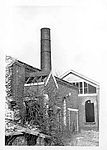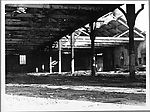 N. Hingley & Sons 1989
N. Hingley & Sons 1989 N. Hingley & Sons 1989
N. Hingley & Sons 1989 N. Hingley & Sons 1989
N. Hingley & Sons 1989 Lloyds testing house
Lloyds testing house Lloyds testing house
Lloyds testing house Lloyds testing house
Lloyds testing house Lloyds testing house
Lloyds testing house Lloyds testing house
Lloyds testing house Lloyds testing house
Lloyds testing house Lloyds testing house
Lloyds testing house Lloyds testing house
Lloyds testing house Derelict domestic chainshop
Derelict domestic chainshop Derelict domestic chainshop
Derelict domestic chainshop Mushroom Green before restoration
Mushroom Green before restoration Mushroom Green before restoration
Mushroom Green before restoration

The wrought iron chain industry began its decline during the 1920s and was finally ended in the 1970s. Why did it come to an end?
There is a suggestion, that the British public (fee-paying) school system was a major factor in industrial decline. The children of the successful businessmen learnt an anti-industrial way of thinking, the priorities of the British public school system being duty, service and excellence on the sportsfield.
The British public school system placed little emphasis on a technical and scientific education so, while the Germans and U.S. were providing a technical education for their youth, the British were being trained to be civil servants, colonial governors and the like, rather than businessmen.
In order to mechanise the chainmaking industry, it was necessary to produce iron castings that were as reliable as wrought iron. This was done abroad and so chainmaking was automated, and although a few of the old chainmaking firms did invest in the new equipmment, the lead was lost to foreign firms.
The wealth generated by the successful industrial empires of the Victorian and Edwardian eras was not being re-invested in Britain. Although home-grown British industry was in decline from the 1920s onwards, extensive investment abroad continued to contribute to Britain’s success as a financial hub, as it still does today.
The British were against price-fixing and import duty. U.S. and German businesses were price-fixing, but British businessmen regarded such behaviour as unacceptable. U.S. and German governments were placing duties on imports, the U.K. continued with a free-trade policy.
It is also said that the British were not the best salespeople abroad, and that fear of foreigners prevented the level of foreign expansion that happened in other European and U.S. businesses at the start of the 20th century.
Domestic chainshops declined from the 1930s onwards due to the increased use of tractors which meant the end of demand for animal harnesses. The domestic industry not coming to an end until the 1970s is a tribute to the quality of the product, as there must have been those who were prepared to pay a premium for a hand-made product.
As for larger factory-made chain, production of electrically-welded steel chain continues in the Black Country, although the days of market domination are over.
Rollover the captions in the box to see the available images in thumbnail format, click the caption to see the full-size image
| Reference: | 668 |
| Keywords: | |
| Archive Ref: | |
| Updated: | Thu 22 Mar 2007 - 1 |
| Interpretation written by | Louis Howe |
| Author's organisation | Curatorial |
| Organisation's website |